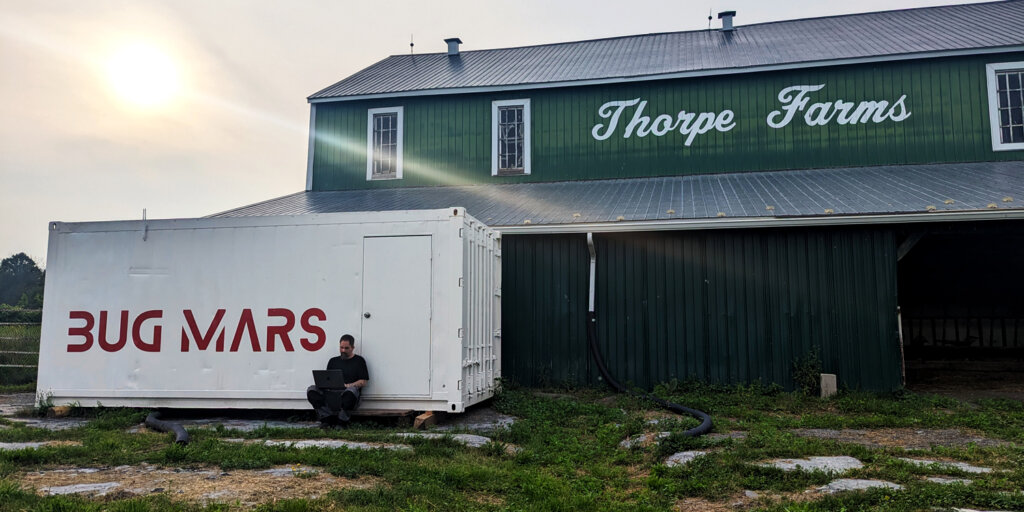Home » Data Surge: How Two Tech Companies Optimized Their Smart Device Solutions
Data Surge: How Two Tech Companies Optimized Their Smart Device Solutions

Bug Mars and Neuraura are positioned for commercial success following their access to high-compute power, low-latency networks, and a specialized support initiative designed to aid startups in testing and refining their technologies. Bug Mars, co-founded by Seth Hardy, operates in the precision agriculture sector, focusing on the monitoring of insect farms through their AI-driven platform. However, initial testing faced significant challenges due to unreliable Wi-Fi at their Kingston, Ontario location, where Hardy experienced frustrating connectivity issues that hindered effective data streaming crucial for real-time monitoring. Given that rapid disease spread could devastate their insect colonies, low latency and reliable internet connections are essential for success.
Neuraura, founded by Pierre Wijdenes, is a neurotechnology company aiming to assist individuals with polycystic ovary syndrome (PCOS). Their device will provide localized central nervous system stimulation, relying heavily on consistent data analysis to inform treatment adjustments. Both companies require immediate and reliable data processing, which traditional wireless and wired networks often cannot sufficiently provide. Ian McCarter from MaRS highlights the vital importance of accessible technology for startups, emphasizing that limited testing capabilities could prevent promising solutions from reaching the market.
To overcome these challenges, MaRS has partnered with Bell and Amazon Web Services (AWS) to provide startups like Bug Mars and Neuraura so that they can use AWS's Wavelength on Bell’s 5G network. This partnership offers free access to advanced multi-access edge computing (MEC), allowing both companies to test and optimize their products in a robust, low-latency environment. The benefits of this technology include offloading intensive calculations to the AWS cloud, which is proximate to the data source, thereby enhancing performance without dependence on public internet infrastructure.
Seth Hardy shared that access to such a reliable network not only streamlined testing but also boosted Bug Mars’s efficiency in data processing. With the insect farming industry rapidly expanding—projected to grow from over $511 million in 2021 to approximately $10 billion by 2030—technology like AWS Wavelength can help address connectivity issues that are common in remote farm locations. This innovation might give the company a competitive edge in an industry where margins are tight.
For Neuraura, the secure transmission and analysis of user data are paramount. The potential risks of data breaches loom large, so leveraging AWS's private data processing capabilities ensures a higher level of security for sensitive health information. Neuraura is working towards FDA clearance and preparing for clinical trials, supported by the guidance and infrastructure offered through the partnership with MaRS, Bell, and AWS.
Both Bug Mars and Neuraura’s engagements with this initiative have rekindled momentum towards their commercialization processes. The ability to refine and test their innovative technologies positions them well to stay ahead of competitors and ultimately deliver enhanced solutions to their respective markets. As both companies progress, the need for resilient, high-speed internet connections will continue to be a decisive factor in their operational success.
MaRS Discovery District
https://www.marsdd.com/
MaRS is the world's largest urban innovation hub in Toronto that supports startups in the health, cleantech, fintech, and enterprise sectors. When MaRS opened in 2005 this concept of urban innovation was an untested theory. Today, it’s reshaping cities around the world. MaRS has been at the forefront of a wave of change that extends from Melbourne to Amsterdam and runs through San Francisco, London, Medellín, Los Angeles, Paris and New York. These global cities are now striving to create what we have in Toronto: a dense innovation district that co-locates universities, startups, corporates and investors. In this increasingly competitive landscape, scale matters more than ever – the best talent is attracted to the brightest innovation hotspots.


